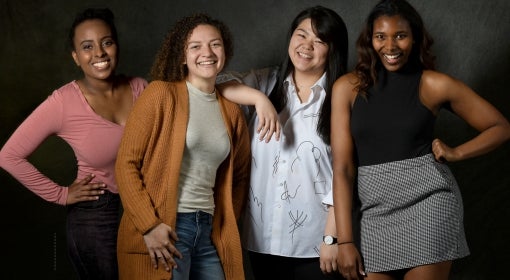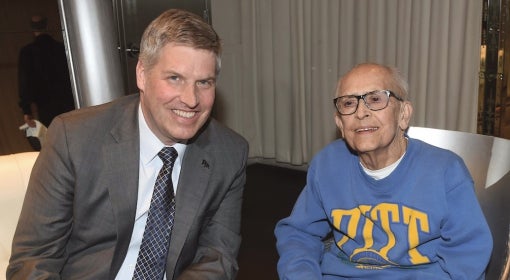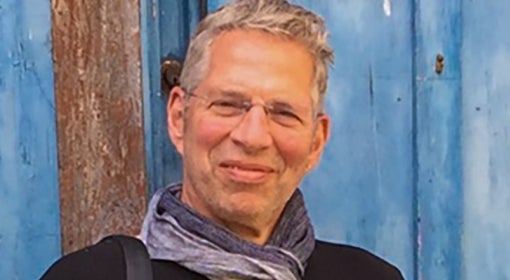 Chancellor Patrick Gallagher connects with Valerie Kinloch, the Renée and Richard Goldman Dean of the School of Education. An author and researcher in the realms of literacy, language, culture, and community engagement, Kinloch has worked in public schools in Houston and Harlem. Before coming to Pitt in 2017, she served as a professor and associate dean of diversity, inclusion, and community engagement at the Ohio State University.
Chancellor Patrick Gallagher connects with Valerie Kinloch, the Renée and Richard Goldman Dean of the School of Education. An author and researcher in the realms of literacy, language, culture, and community engagement, Kinloch has worked in public schools in Houston and Harlem. Before coming to Pitt in 2017, she served as a professor and associate dean of diversity, inclusion, and community engagement at the Ohio State University.
Gallagher: What made you want to become an educator?
Kinloch: A couple of different experiences. I was the first in my family to graduate college. As a young girl, I knew that my father did not graduate high school, and I began to think more deeply about who could access higher education. Growing up in Charleston, South Carolina, there were people in my family and community who deserved opportunities for high education but could not find them. Much of my work has been about understanding these obstacles and fighting against them.
Gallagher: At Pitt, you’ve created the position of Associate Dean for Equity and Justice in Education. This may be the only title of its kind in higher ed. How does this position help Pitt advance education?
Kinloch: It makes Pitt an innovator in the pursuit of equity—creating access and possibilities despite differences in economics, race, or geography. This position will enable us to marshal the resources, support, and opportunities for diverse faculty and students to come into our school. If we can bring more of those voices to Pitt, the ideas of how to pursue justice and inclusion for people who are historically excluded from higher education will resonate throughout society.
Gallagher: Also new is the Healthy Lifestyle Institute. How is it related to education?
Kinloch: The institute is a learning environment where senior scientists will mentor and support junior investigators as they develop research to help the whole community have a healthier quality of life. In terms of educators, it’s about providing wellness research that allows them to put on their full armor. We want educators to not only access the best policies and curricula to be stronger leaders, but we also want them at their best when it comes to their physical, emotional, mental, and social well-being in our classrooms and communities. Once they have this armor, they can walk into our schools, our children’s communities, and model this wellness to others.
Gallagher: You came here from Columbus, Ohio, where you had years of community engagement work. What lessons did you bring to Pitt?
Kinloch: That all voices must have equal value. In my role in Ohio, I listened to family members, children in public schools, nonprofit groups, social service agencies, after-school program leaders, principals. If we’re not listening to all perspectives, then we are not learning how to provide access to educational opportunities. When we invite people in to speak for themselves, we send the message that we value and validate their histories and experiences.
This article appeared in the Summer 2018 issue of Pitt Magazine.




